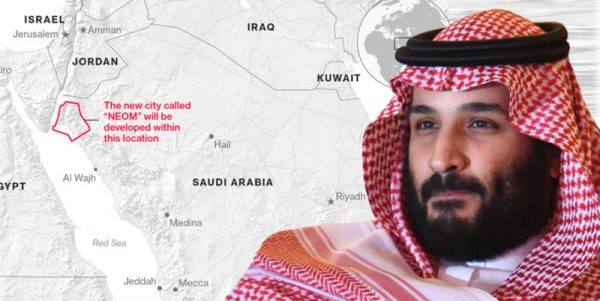
Statement by foreign minister comes after Israeli media reported PM Benjamin Netanyahu held secret talks with kingdom’s crown prince.
Saudi Arabia’s foreign minister has denied reports that a meeting took place between Crown Prince Mohammed bin Salman and Israeli officials on Sunday.
“I have seen press reports about a purported meeting between HRH the Crown Prince and Israeli officials during the recent visit by @SecPompeo. No such meeting occurred. The only officials present were American and Saudi,” Prince Faisal bin Farhan Al Saud wrote on Twitter on Monday.
Israeli media reported earlier that Prime Minister Benjamin Netanyahu held secret talks in Saudi Arabia on Sunday with Crown Prince Mohammed, also known as MBS.
The reports by Israeli public broadcaster Kan and other outlets came weeks after Israel reached deals to establish relations with the United Arab Emirates, Bahrain and Sudan.
I have seen press reports about a purported meeting between HRH the Crown Prince and Israeli officials during the recent visit by @SecPompeo. No such meeting occurred. The only officials present were American and Saudi.
— فيصل بن فرحان (@FaisalbinFarhan) November 23, 2020
The deals were brokered by the administration of United States President Donald Trump, who leaves office in less than two months.
There has been widespread speculation, within Israel and the US, that Washington may push for other Arab states to follow suit before President-elect Joe Biden is sworn in.
US Secretary of State Mike Pompeo, who was in Israel last week, was also at the reported talks, according to Kan’s diplomatic correspondent.
Pompeo has confirmed he was in Neom on the Red Sea as part of a Middle East Tour and met MBS.
Netanyahu’s office, US State Department and the US embassy to Israel had not commented on the reports.
Saudi stance
Publicly, Saudi Arabia has said it would stick to the decades-old Arab League position of not having ties with Israel until the Jewish state’s conflict with the Palestinians is resolved.
The Palestinians have condemned the normalisation deals as “a stab in the back”, urging Arab states to hold firm until Israel ends its occupation of Palestinian territory and agrees to the creation of a Palestinian state.
In late August, Netanyahu said Israel was holding “unpublicised meetings with Arab and Muslim leaders to normalise relations with the state of Israel”, without naming any countries.
But, amid speculation that smaller Arab states, such as Oman, were also interested in a deal, Saudi Arabia has stood out as the key target for Israel, given the kingdom’s wealth and influence.
Sunni Arab states, and especially Israel, worry that Biden may seek to revive the Iran nuclear deal agreed between Tehran and world powers during Barack Obama’s presidency, which was scrapped by Trump.
Trump’s administration has also downplayed the importance of human rights issues in international diplomacy and was particularly cautious about criticising Saudi Arabia’s rights record, notably about the murder by Saudi agents of prominent journalist and Saudi royal critic Jamal Khashoggi.
But, amid speculation that smaller Arab states, such as Oman, were also interested in a deal, Saudi Arabia has stood out as the key target for Israel, given the kingdom’s wealth and influence.
Sunni Arab states, and especially Israel, worry that Biden may seek to revive the Iran nuclear deal agreed between Tehran and world powers during Barack Obama’s presidency, which was scrapped by Trump.
Trump’s administration has also downplayed the importance of human rights issues in international diplomacy and was particularly cautious about criticising Saudi Arabia’s rights record, notably about the murder by Saudi agents of prominent journalist and Saudi royal critic Jamal Khashoggi.
ALJAZEERA

Leave a Reply
You must be logged in to post a comment.